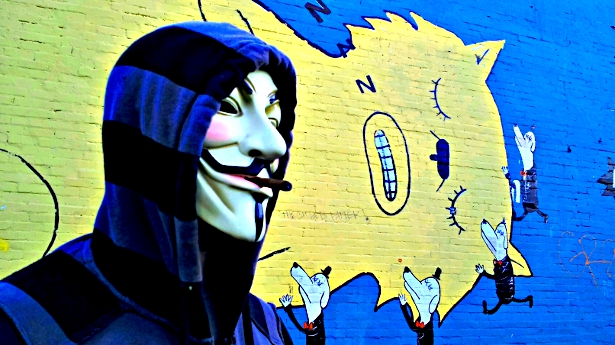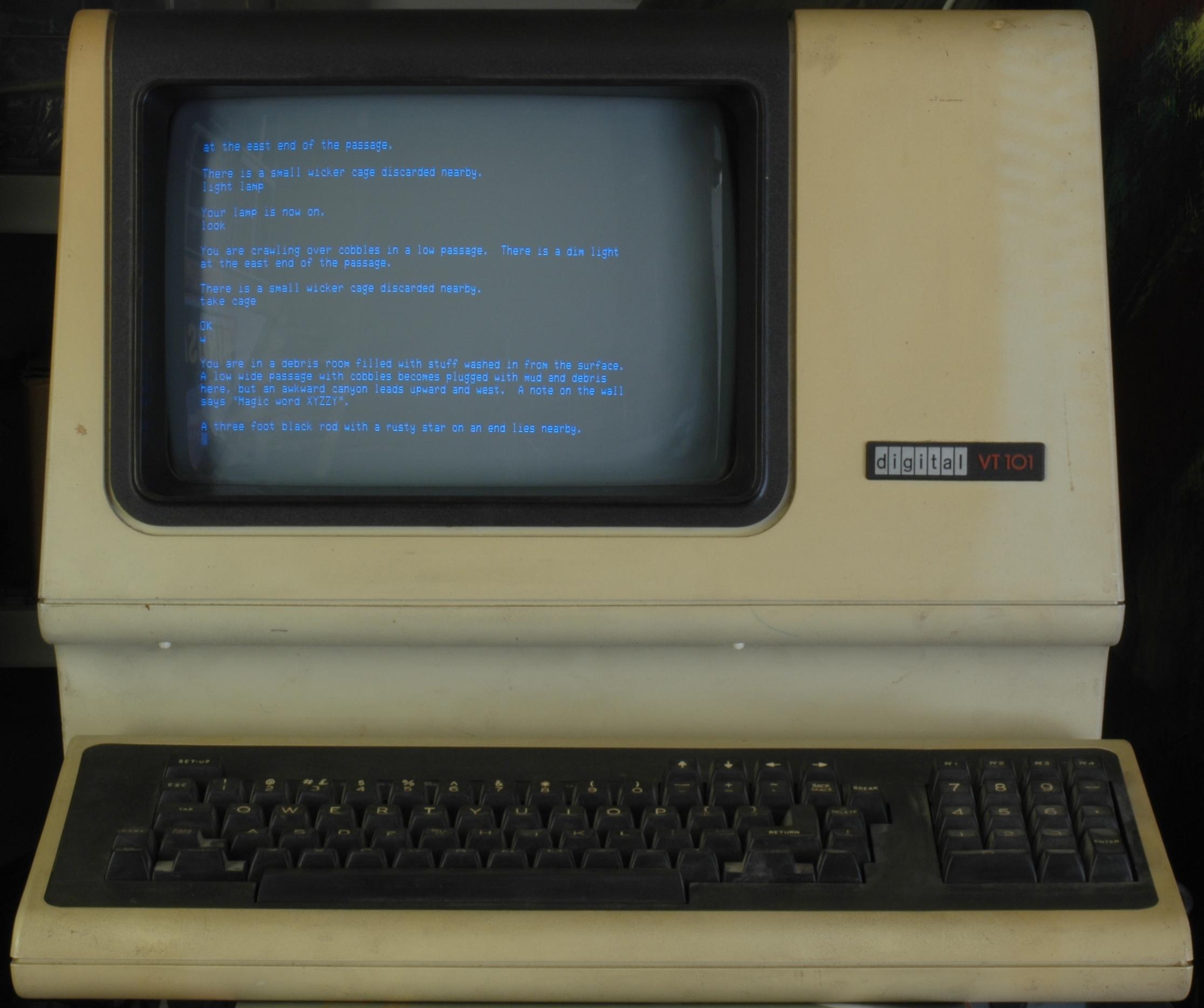|
Intervasion Of The UK
The Intervasion of the UK was a 1994 electronic civil disobedience and collective action against John Major's Criminal Justice Bill Criminal Justice Act (with its many variations) is a stock short title used for legislation in Canada, Malaysia, the Republic of Ireland and the United Kingdom relating to the criminal law (including both substantive and procedural aspects of that ... which sought to outlaw outdoor dance festivals and "music with a repetitive beat". Launched by a group called The Zippies from San Francisco's 181 Club on Guy Fawkes Day, November 5, 1994, it resulted in government websites going down for at least a week. It utilised a form of Distributed Denial of Service (DDoS) known as the E-mail bomb, Email bomb in order to overload servers as a form of online protest and Internet activism. It was the first such use of the Internet and technology as a weapon of struggle and/or civil disobedience, and preceded the :it:Netstrike, 1995 Italian NetStrike. Campaign again ... [...More Info...] [...Related Items...] OR: [Wikipedia] [Google] [Baidu] |
Electronic Civil Disobedience
Electronic civil disobedience (ECD; also known as cyber civil disobedience or cyber disobedience) can refer to any type of civil disobedience in which the participants use information technology to carry out their actions. Electronic civil disobedience often involves computers and the Internet and may also be known as hacktivism. The term "electronic civil disobedience" was coined in the critical writings of Critical Art Ensemble (CAE), a collective of tactical media artists and practitioners, in their seminal 1996 text, ''Electronic Civil Disobedience: And Other Unpopular Ideas''. Electronic civil disobedience seeks to continue the practices of nonviolent-yet-disruptive protest originally pioneered by American poet Henry David Thoreau, who in 1848 published '' Civil Disobedience''. A common form of ECD is coordination DDoS against a specific target, also known as a virtual sit-in. Such virtual sit-ins may be announced on the internet by hacktivist groups like the Electronic ... [...More Info...] [...Related Items...] OR: [Wikipedia] [Google] [Baidu] |
Bulletin Board System
A bulletin board system (BBS), also called computer bulletin board service (CBBS), is a computer server running software that allows users to connect to the system using a terminal program. Once logged in, the user can perform functions such as uploading and downloading software and data, reading news and bulletins, and exchanging messages with other users through public message boards and sometimes via direct chatting. In the early 1980s, message networks such as FidoNet were developed to provide services such as NetMail, which is similar to internet-based email. Many BBSes also offer online games in which users can compete with each other. BBSes with multiple phone lines often provide chat rooms, allowing users to interact with each other. Bulletin board systems were in many ways a precursor to the modern form of the World Wide Web, social networks, and other aspects of the Internet. Low-cost, high-performance asynchronous modems drove the use of online services and BBSes t ... [...More Info...] [...Related Items...] OR: [Wikipedia] [Google] [Baidu] |
Reality Hacking
In Internet activism, hacktivism, or hactivism (a portmanteau of ''hack'' and ''activism''), is the use of computer-based techniques such as hacking as a form of civil disobedience to promote a political agenda or social change. With roots in hacker culture and hacker ethics, its ends are often related to free speech, human rights, or freedom of information movements. Hacktivist activities span many political ideals and issues. Freenet, a peer-to-peer platform for censorship-resistant communication, is a prime example of translating political thought and freedom of speech into code. Hacking as a form of activism can be carried out through a network of activists, such as Anonymous and WikiLeaks, or through a singular activist, working in collaboration toward common goals without an overarching authority figure. "Hacktivism" is a controversial term with several meanings. The word was coined to characterize electronic direct action as working toward social change by combining prog ... [...More Info...] [...Related Items...] OR: [Wikipedia] [Google] [Baidu] |
Hacktivism
In Internet activism, hacktivism, or hactivism (a portmanteau of ''hack'' and ''activism''), is the use of computer-based techniques such as hacking as a form of civil disobedience to promote a political agenda or social change. With roots in hacker culture and hacker ethics, its ends are often related to free speech, human rights, or freedom of information movements. Hacktivist activities span many political ideals and issues. Freenet, a peer-to-peer platform for censorship-resistant communication, is a prime example of translating political thought and freedom of speech into code. Hacking as a form of activism can be carried out through a network of activists, such as Anonymous and WikiLeaks, or through a singular activist, working in collaboration toward common goals without an overarching authority figure. "Hacktivism" is a controversial term with several meanings. The word was coined to characterize electronic direct action as working toward social change by combining pro ... [...More Info...] [...Related Items...] OR: [Wikipedia] [Google] [Baidu] |
Electrohippies
The Electrohippies Collective (Ehippies) is an international group of internet activists based in Oxfordshire, England, whose purpose is to express disapproval of governmental policies of mass media censorship and control of the Internet "in order to provide a 'safe environment' for corporations to do their deals."Cyberlaw UK: Civil rights and protest on the Internet'(PDF) December 2000 communiqué of Electrohippies Collective Significant actions Against the WTO, 1999 The protest against the World Trade Organization (WTO) in Seattle in 1999 was a signal event in the anti-globalisation movement. Thousands of people gathered to disrupt the World Trade Organisation conference by preventing delegates from entering the conference venue.Jordan T & Taylor P ''Hactivism and Cyber War, Rebel with a Cause?'' Routledge, New York 2004 Simultaneously, an online direct protest was run by The Electrohippies Collective with what is now a familiar aspect of cyber space: a denial-of-service (DOS) a ... [...More Info...] [...Related Items...] OR: [Wikipedia] [Google] [Baidu] |
Electronic Civil Disobedience
Electronic civil disobedience (ECD; also known as cyber civil disobedience or cyber disobedience) can refer to any type of civil disobedience in which the participants use information technology to carry out their actions. Electronic civil disobedience often involves computers and the Internet and may also be known as hacktivism. The term "electronic civil disobedience" was coined in the critical writings of Critical Art Ensemble (CAE), a collective of tactical media artists and practitioners, in their seminal 1996 text, ''Electronic Civil Disobedience: And Other Unpopular Ideas''. Electronic civil disobedience seeks to continue the practices of nonviolent-yet-disruptive protest originally pioneered by American poet Henry David Thoreau, who in 1848 published '' Civil Disobedience''. A common form of ECD is coordination DDoS against a specific target, also known as a virtual sit-in. Such virtual sit-ins may be announced on the internet by hacktivist groups like the Electronic ... [...More Info...] [...Related Items...] OR: [Wikipedia] [Google] [Baidu] |
Culture Jamming
Culture jamming (sometimes also guerrilla communication) is a form of protest used by many anti-consumerist social movements to disrupt or subvert media culture and its mainstream cultural institutions, including corporate advertising. It attempts to "expose the methods of domination" of mass society. Culture jamming employs techniques originally associated with Letterist International, and later Situationist International known as '' détournement.'' It uses the language and rhetoric of mainstream culture to subversively critique the social institutions that produce that culture. Tactics include editing company logos to critique the respective companies, products, or concepts they represent, or wearing fashion statements that criticize the current fashion trends by deliberately clashing with them.Boden, Sharon and Williams, Simon J. (2002) "Consumption and Emotion: The Romantic Ethic Revisited", Sociology 36(3):493–512 Culture jamming often entails using mass media to pro ... [...More Info...] [...Related Items...] OR: [Wikipedia] [Google] [Baidu] |
Ping Of Death
A ping of death is a type of attack on a computer system that involves sending a malformed or otherwise malicious ping to a computer. A correctly formed ping packet is typically 56 bytes in size, or 64 bytes when the Internet Control Message Protocol (ICMP) header is considered, and 84 bytes including Internet Protocol (IP) version 4 header. However, any IPv4 packet (including pings) may be as large as 65,535 bytes. Some computer systems were never designed to properly handle a ping packet larger than the maximum packet size because it violates the Internet Protocol. Like other large but well-formed packets, a ping of death is fragmented into groups of 8 octets before transmission. However, when the target computer reassembles the malformed packet, a buffer overflow can occur, causing a system crash and potentially allowing the injection of malicious code. In early implementations of TCP/IP, this bug is easy to exploit and can affect a wide varie ... [...More Info...] [...Related Items...] OR: [Wikipedia] [Google] [Baidu] |
Powerbook 180
The PowerBook 180 is a portable computer released by Apple Computer along with the PowerBook 160 in October 1992. At the time, it constituted the new top-of-the-range model, replacing the previous PowerBook 170. Its case design and features are the same as that of the 170, but it shipped with the more powerful 33 MHz Motorola 68030 CPU and Motorola 68882 FPU. Along with the 160, it introduced a new power-saving feature which allowed the processor to run at a slower 16 MHz rate, the same speed as the original 140. PowerBook 180 The PowerBook 180 came with a (diagonal) active matrix LCD screen capable of displaying 4-bit grayscale at a resolution of 640×400, and a trackball was mounted beneath the keyboard. A 1.44 MB floppy disk drive and 80 MB 2.5-inch hard drive were also standard. The Apple Powerbook also gave an option of possible expansion to a 120 MB hard drive. They are equipped with keyboard stands to slant the keyboard. Like the Macintosh ... [...More Info...] [...Related Items...] OR: [Wikipedia] [Google] [Baidu] |
VT100
The VT100 is a video terminal, introduced in August 1978 by Digital Equipment Corporation (DEC). It was one of the first terminals to support ANSI escape codes for cursor control and other tasks, and added a number of extended codes for special features like controlling the status lights on the keyboard. This led to rapid uptake of the ANSI standard, which became the de facto standard for hardware video terminals and later terminal emulators. The VT100 series, especially the VT102, was extremely successful in the market, and made DEC the leading terminal vendor at the time. The VT100 series was replaced by the VT200 series starting in 1983, which proved equally successful. Ultimately, over six million terminals in the VT series were sold, based largely on the success of the VT100. Description DEC's first video terminal was the VT05 (1970), succeeded by the VT50 (1974), and soon upgraded to the VT52 (1975). The VT52 featured a text display with 80 columns and 24 rows, bidirection ... [...More Info...] [...Related Items...] OR: [Wikipedia] [Google] [Baidu] |
UUCP
UUCP is an acronym of Unix-to-Unix Copy. The term generally refers to a suite of computer programs and protocols allowing remote execution of commands and transfer of files, email and netnews between computers. A command named is one of the programs in the suite; it provides a user interface for requesting file copy operations. The UUCP suite also includes (user interface for remote command execution), (the communication program that performs the file transfers), (reports statistics on recent activity), (execute commands sent from remote machines), and (reports the UUCP name of the local system). Some versions of the suite include / (convert 8-bit binary files to 7-bit text format and vice versa). Although UUCP was originally developed on Unix in the 1970s and 1980s, and is most closely associated with Unix-like systems, UUCP implementations exist for several non-Unix-like operating systems, including DOS, OS/2, OpenVMS (for VAX hardware only), AmigaOS, classic Mac OS, an ... [...More Info...] [...Related Items...] OR: [Wikipedia] [Google] [Baidu] |
Timothy Leary
Timothy Francis Leary (October 22, 1920 – May 31, 1996) was an American psychologist and author known for his strong advocacy of psychedelic drugs. Evaluations of Leary are polarized, ranging from bold oracle to publicity hound. He was "a hero of American consciousness", according to Allen Ginsberg, and Tom Robbins called him a "brave neuronaut". As a clinical psychologist at Harvard University, Leary founded the Harvard Psilocybin Project after a revealing experience with magic mushrooms in Mexico. He led the Project from 1960 to 1962, testing the therapeutic effects of lysergic acid diethylamide (LSD) and psilocybin, which were legal in the U.S., in the Concord Prison Experiment and the Marsh Chapel Experiment. Other Harvard faculty questioned his research's scientific legitimacy and ethics because he took psychedelics along with his subjects and allegedly pressured students to join in. One of Leary's students, Robert Thurman, has denied that Leary pressured unwilling studen ... [...More Info...] [...Related Items...] OR: [Wikipedia] [Google] [Baidu] |



.jpg)


